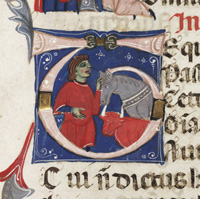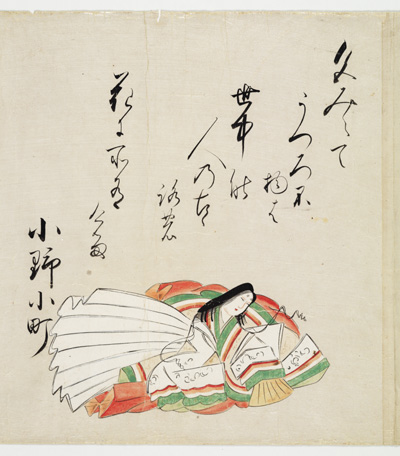THE NATURE OF THE WORLD
 |
| The initial ‘T’ of the third book of Virgil’s ‘Georgics’, from a late fourteenth-century manuscript. The poem, a sublime evocation of rural Italy, discusses the keeping of horses and cattle. MS Ee.5.5. (Original document not on display.) |
Human responses to the natural world, in their extraordinary variety and subtlety, have been memorably reflected in poetry. Celestial bodies, weather, landscapes, flora and fauna have all been portrayed in poems for their own sakes, and also employed in metaphors and similes to express emotional states and to develop ideas and arguments in verse. Poetry has served as a medium in which natural philosophers have expounded theories of the universe at the cosmic and atomic scales and determined the place of mankind in the scheme of creation. Other writers have produced verse treatises aimed at improving animal husbandry and the cultivation of crops.
Items on display:
MS Nn.2.40: Lucretius, ‘De rerum natura’, fifteenth century, open at the beginning of the second book. FJ.1000.10: ‘Sanjurokkasen emaki’ (‘The painted scroll of the thirty-six poetic geniuses’), eighteenth century, open at a portrait of the poet Ono no Komachi.
 |
The poet Ono no Komachi, with one of her poems, from an eighteenth-century Japanese manuscript scroll. FJ.1000.10. |